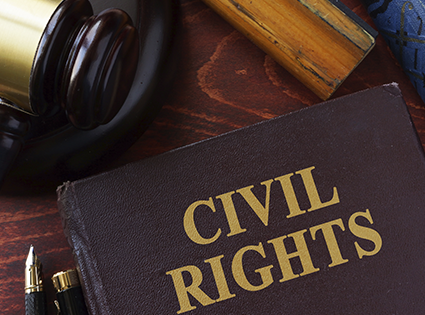Supreme Court changes the legal panorama for years to come
The Supreme Court of the United States (SCOTUS) ended its term at the beginning of July and did so with very important decisions. As well as the decision to rescind Roe v. Wade last year, these SCOTUS decisions show the conservative tendency of the court and bring vital implications in the area of civil rights and in the ability of the Biden administration to fulfill its electoral promises. The rulings cover significant issues such as affirmative action, student debt, and the rights of companies to deny services to members of the LGBTQ community. In this article, we provide you with all the information to understand these decisions and some of their implications:
Affirmative Action Decision. Students for Fair Admissions, Inc v. President and Fellows of Harvard College In this case, Students for Fair Admissions (SFFA), an activist group against the usage of race in college admissions sued Harvard College over its admissions process. The group alleged that the process violates Title VI of the Civil Rights Act of 1964 by discriminating against Asian American applicants in favor of white applicants. The case was consolidated with a similar one dealing with the process in the University of North Carolina. In its decision, SCOTUS agreed with the group and decided that the admission policies of Harvard University and the University of North Carolina were discriminatory against Asian students and therefore, could not be implemented. This ruling effectively prohibits the use of affirmative action policies in the US, which had been employed to increase the representation of Black, Hispanic, and other underrepresented minority students at selective higher education institutions for decades. The impact of this decision may vary, as not all universities consider race as a factor in the admissions process. In fact, nine states have already prohibited the consideration of race in admissions: California, Washington, Florida, Michigan, Nebraska, Arizona, New Hampshire, Oklahoma, and Idaho. Previous bans on affirmative action have resulted in declines in Black enrollment at top schools in the University of California system and the University of Michigan. While some studies have shown an increase in enrollment after several years, the rise has not been equivalent to the increase in Hispanic and African American students. Student Loan Forgiveness Decision: Biden v. Nebraska The Supreme Court ruled against the Biden administration’s attempt at student loan forgiveness. The Biden administration sought to forgive $430 billion in student loans. Nebraska and five other states challenged the forgiveness program, arguing that it violated the separation of powers and the Administrative Procedure Act. The court addressed two key questions: whether Nebraska and other states had judicial standing to challenge the student loan forgiveness program and whether the program exceeded the legal authority of the Secretary of Education or violated the Administrative Procedure Act. The court concluded that the modifications made by the Biden administration transformed the existing provisions and expanded forgiveness to nearly every borrower in a manner that did not align with the intended use of the Higher Education Relief Opportunities for Students Act (HEROES Act). It is important to note that despite this ruling, President Biden has announced new measures to pursue student debt forgiveness through alternative means. LGBTQIA Rights Decision: 303 Creative LLC v. Elenis The Supreme Court addressed the issue of whether a business could deny services to members of the LGBTQIA community based on religious objections. Lorie Smith, the owner of a graphic design company, opposed same-sex marriages due to religious reasons and did not want to design websites for such weddings. The case revolved around an email allegedly sent by a potential gay client, although there is emerging information suggesting that the email may be false. Colorado’s Anti-Discrimination Act prohibits businesses open to the public from discriminating based on various characteristics, including sexual orientation. The law defines discrimination not only as refusing to provide goods or services but also as publishing any communication that implies the unwelcome status of an individual due to a protected characteristic. Smith and her company challenged the law, claiming numerous constitutional violations. The Supreme Court asserted that the First Amendment prohibits Colorado from compelling a website designer to create expressive designs conveying messages with which the designer disagrees. The court emphasized that the First Amendment protects an individual’s right to speak their mind, regardless of whether the government considers their speech “misguided.” It also noted that forcing Smith to comply with Colorado’s demands violated her freedom of expression. The legal landscape of the United States is changing. So now, more than ever, it’s imperative to pay close attention to the decisions of the court because the implications of them will have a ripple effect that will change politics, and life in the U.S for years to come. |
